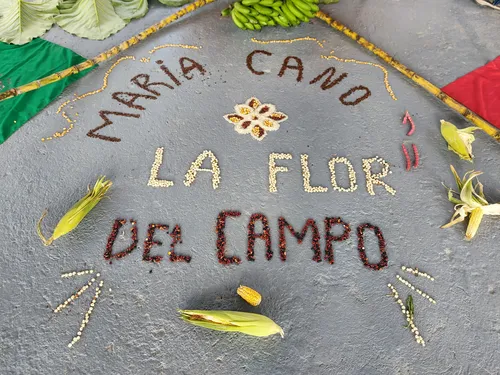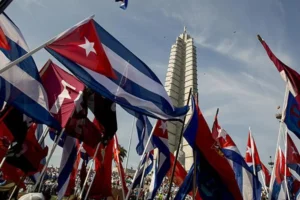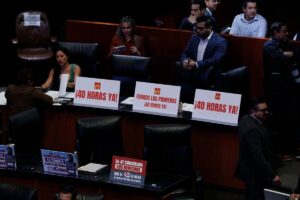
A university in the countryside aimed at peasants. This is how the Latin American Agroecological Institute (Iala) Maria Cano defines its purpose as a training and training center for rural workers in Colombia.
Located in the municipality of Viotá, in the interior of the central region of the country, the initiative, named after a historic Colombian communist activist, was inaugurated in 2016 by the National Agricultural Union Federation of Colombia (Fensuagro). In partnership with Via Campesina, the organization wants to transmit agroecological techniques in food production to peasants.
Iala Maria Cano is not an isolated initiative. It is one of nine projects supported by Via Campesina around the world of agroecology training centers. The platform, which brings together the main fighting movements in the field on all continents, seeks to strengthen local movements to promote food production in a healthy and autonomous way.
In the Colombian case, the idea is to train workers from different regions of the country to contain the advance of agribusiness, generate income for families and continue producing healthy food for the population’s consumption.
“Agribusiness, the methods sold through technological packages and the rural expansionism that is taught in universities do not present solutions to the problems we have as humanity”, claims Fabián Pachón, one of the leaders of Iala Maria Cano. “It is the peasants who are presenting solutions when we demonstrate that it is we, with our knowledge of the territories, who produce food. So who should teach who?”, he asks.
:: ‘Humanity’s Dilemmas’ discusses ways to defend life and nature amid the crisis of capitalism ::
The space with more than 16 hectares (160 thousand m²) has several classrooms to receive regular classes made up of peasants from various Colombian departments, but it is in the so-called “productive plants” that work and learning take place in practice. They are used to produce different types of food, such as vegetables, which are used to feed students and workers, and even have a pasture for agroecological livestock farming.
The milk produced is processed by the students themselves and, thanks to equipment acquired by Fensuagro, today the institute is able to teach its students how to produce various derivatives, such as cheese and yogurt.
“That’s why we decided that our training spaces cannot just be classrooms with a teacher wanting to impose knowledge isolated from the reality of the territories. This came from a logical analysis, assuming that in Colombia we produce more than 80% of what Colombians they consume. So who has the capacity to solve the problem of hunger? It’s not agribusiness, which only heats the planet and destroys the peasants”, says Pachón.
:: ‘Food sovereignty guarantees a future’: movements inaugurate Via Campesina international conference ::
The leader also explains that Iala Maria Cano wants to strengthen local peasants by promoting spaces for commercial exchange, the so-called “peasant markets”, which consist of regular events in different locations so that other rural workers and potential consumers can have access to what the students and residents of the Viotá region are producing.
“This all serves to build food sovereignty and agrarian reform in the territories. In the beginning, we thought of a training center, but we didn’t want the knowledge to leave entirely here. We are in an area of small farmers and there is an infinite amount of knowledge of agroecological practices that can be transmitted from farmer to farmer”, he states.
Conflict, land and the arrival of peace
The emergence of Iala Maria Cano is directly linked to the armed conflict in Colombia, which involves several guerrilla groups, paramilitaries and the Army. “This area was completely forgotten by the State because they knew it was a guerrilla zone”, says Idali Vanegas. One of the coordinators of Iala Maria Cano, she explains that the Viotá region was greatly impacted by clashes between armed groups, not only due to the risk of imminent violence that peasants faced, but due to the negligence of the authorities.
“All the peasants who lived in this space were classified as guerrillas and this meant that the peasants were forgotten and excluded from a series of initiatives that took place around the region. What did they do in the face of this? They assumed this reality and organized themselves,” he says.
With a particular history of guerrilla movements, Colombia has been experiencing an armed conflict that has been going on since the beginning of the second half of the 20th century. The emergence of paramilitary groups during the 1970s and 1980s only increased the degree of violence in the confrontations and the field became made it the most affected region in the country.
According to the Colombian Truth Commission, at least 45.5% of human rights violations committed as a result of the armed conflict occurred in rural areas. There are more than 4.8 million peasant victims and more than 50% of the cases of violence registered against these workers are related to the abandonment or forced seizure of their lands.
:: After 3 murders in one week, Colombia already records 97 social leaders killed in 2023 ::
Maria Isabel Caicedo is a rural worker and has lived in the municipality of Viotá for over 20 years. To the Brazil in fact, She said that, currently, she is able to support her family by producing and selling her own coffee and handicrafts under her own brand, “Chavitas”. But times were not always peaceful, especially during the most violent phase of the armed conflict.
“It was very difficult, people lived in fear. I didn’t go to the city for months because I was afraid, I thought I might die in a shooting. I always really liked studying, but I preferred not to study because of that”, he explains.
In 2016, the Colombian State and the Revolutionary Armed Forces of Colombia (FARC), then the largest guerrilla group in the country, signed a peace agreement that put an end to the confrontation between the parties. Along with the agreement, authorities and unarmed people committed to carrying out a series of activities to promote work in the field and restore the necessary security so that workers could produce.
“Almost all of our production was lost, we didn’t have the opportunity that the ‘peasant market’ gives us today”, says Maria Isabel. “The majority of production here was coffee, and we sold very little, just the raw grain, with no added value. I never imagined that we could do such great things as we are doing now, supporting our homes, teaching and learning how to feed ourselves better “, he states.
:: In Venezuela, the Colombian government and the ELN guerrilla group resume peace negotiations ::
One of the coordinators of Iala Maria Cano, Fabián Pachón explains that, with the signing of the peace agreements, workers were able to remain in the territories “to build initiatives such as the Peasant University and prevent rural youth from having to migrate to the main cities in search for study or employment”. “We believe that, at a time when our education is aimed at work, it is also a proposal for peace,” he says.
Maria Isabel guarantees that the cooling of the conflict and the existence of projects such as Iala Maria Cano were essential for her to be able to produce and generate income for the family. “After the peace process, which was a very beautiful process, we started to take initiatives together because it was possible to forgive and work together,” she says.
Editing: Geisa Marques
Source: www.brasildefato.com.br

